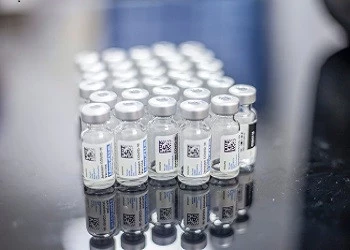This week’s big story: Stop banning exports of medical products, report says
A new report by the National Academies of Sciences, Engineering and Medicine is asking for an international agreement to stop countries banning exports of medicines
Add bookmark
A new report by the National Academies of Sciences, Engineering and Medicine in the US is calling for an international treaty to stop countries banning exports of medical products, with the aim of preventing supply shortages.
The paper, called Building Resilience into the Nation’s Medical Product Supply Chains, cites the restrictions a number of countries imposed on exports of medical products during the pandemic. Many of these still remain, as according to the World Trade Organization (WTO), 45 countries still had more than 70 restrictions in place in 2021, many of which applied to medical products.
The paper’s authors go on to warn that export restrictions “can be dangerously counterproductive. What makes sense in an isolated emergency can be severely damaging in a global crisis”.
Globalization and pharma
The pandemic highlighted how reliant countries have become on imports to ensure they can meet demand for medicines domestically. China produces most of the active pharmaceutical ingredients (API) required to make common drugs such as penicillin and acetaminophen. India, in turn, is heavily reliant on imports from China to make drugs for the US market, where it is the largest provider of generic medication.
The Russian invasion of Ukraine is also raising fears that global supply chains could be disrupted. Russia signed a decree this week banning exports of medical products originating from a list of countries it has deemed “unfriendly”, including the UK, the EU, Canada, New Zealand, the United States, Switzerland and Japan. This ban will affect products stored in warehouses in Russia, or that are going through customs checks.
The need for collaboration
In the paper, the authors urge the US federal government to consider a multilateral arrangement with the major exporters of medical products that would be overseen by the World Trade Organization (WTO). They also suggest that WTO could impose sanctions on countries that did not adhere to the deal.
The 336-page document calls for greater international cooperation to prevent supply chain disruptions. It also contains detailed recommendations to prevent domestic shortages, such as pharmacy teams working together with hospitals to notify them of a potential shortage and suggest alternative forms of treatment.
Earlier this year the US Food and Drug Administration (FDA) made permanent its guidance to prevent supply shortages as a result of the Covid-19 pandemic permanent. This included requiring manufacturers to submit a notification at least six months in advance of a permanent discontinuance of a product.
Also in the news:
• Google has launched a new campaign showcasing female entrepreneurs in Africa, including the story of Vivian Nwakah who launched Medsaf, a pharma supply chain solution to help Nigerians get access to quality pharmaceutical health care.
• Pharma Logistics IQ has launched a new survey with SkyCell to find out your views on the issues pharma supply chains are facing today and the role hybrid container solutions could play. Share your thoughts with us and enter our draw to win a $100 Amazon gift card.
Get exclusive access to member-only articles, reports, videos, interviews, webinars and other premium content from industry experts and thought leaders by signing up to Pharma Logistics IQ here.















